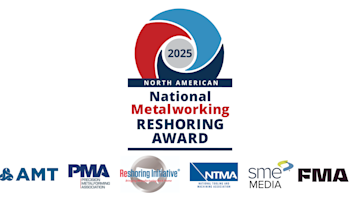Omar Nashashibi, founding partner of The Franklin Partnership LLP, a bi-partisan government relations firm, and Caitlin Sickles, senior principal, Bracewell, an industry-focused legal and advocacy strategies firm, came together at The MFG Meeting 2023 to share data and insights on policy-making actions of concern to manufacturers. Here are seven key takeaways:
As of January 1, 2023, a manufacturer’s ability to expense capital equipment went from 100% to 80%.
“For machine builders and suppliers, if you’re buying a $5 million machine, and you’re going from 100% expensing (“bonus depreciation”) to 80%, that’s a huge chunk of money that affects your financing. This is a major issue and a detriment to the American economy,” says Nashashibi.
In addition, the allowable bonus depreciation continues to decline by 20% until it phases out over five years.
Research and development costs must be amortized over five years this year instead of having the option to fully expense them.
Effective, January 1, 2022, companies will pay taxes on R&D expenditures over time and will no longer be able to expense them in the year incurred and free up capital for more investment.
“This is another example of how government is impacting your business,” says Nashashibi.
“In a survey of small- to medium-sized manufacturers, about half the surveyed said that due to the bonus dip, they were going to reduce their capital expenditures,” Sickles adds. “Thirty percent in the survey said that without R&D tax incentives, they were not going to do R&D activities as planned. And what does that mean? It means less innovation, it means fewer new ideas and that is ultimately threatening to American competitiveness, threatening to American leadership, and it puts us further behind in a competition with China.”
The Federal Trade Commission is looking at barring the use of non-compete agreements, which may affect non-disclosure agreements with employees. Can NDAs be construed as non-compete agreements? In many cases, it will require a more narrowly drafted NDA.
Many manufacturers will sign agreements with engineers, salespeople, and other employees. If the non-compete ban takes effect, companies will want/need to create more certainty in an NDA so as not to raise non-compete concerns but still protect their trade secrets.
The Department of Labor will issue a new proposed rule on overtime eligibility in August. The current salary threshold for overtime is set at $36,568 but may increase significantly with the proposed rule.
“If an employee is earning below ($36,568), salaried and under the EAP (Employee Assistance Program) classification, they are subject to time and a half. If you are thinking from a staffing standpoint, our surveys tell us about one in 10 of your FTEs (full-time equivalent) will be impacted if the threshold goes up to $53,000, meaning they'd be eligible for time and a half. That's something to keep in mind, especially if you're doing staff agency temp work,” says Nashashibi.
In addition, a formerly employer-friendly rule on worker classification will now be proposed to determine employee or independent contractor classification under the Fair Labor Standards Act (FLSA). The new proposal would reclassify workers that are “economically dependent” on a company so they’re considered employees instead of contractors, therefore entitling them to more benefits and legal protections.
Currently, Biden is continuing with the Trump-era tariffs on thousands of goods imported from China. There is an ongoing review that will likely take months.
“For those that are being protected by tariffs on Chinese imports of products that you manufacture, they’re now debating whether to keep some and lose some. The timeline that we're hearing for their review is either sometime in August or September,” says Nashashibi.
The Europeans have adopted a carbon border adjustment mechanism (CBAM) to help reach the EU’s goal of decarbonizing its economy and turn Europe into the world’s first climate-neutral continent by 2050.The EU regulation would require importers of certain carbon-intensive goods to pay a levy on their imports corresponding to the charge imposed on comparable domestic industries under the EU ETS, thus extending the carbon price paid by EU firms to foreign producers of the same goods. The U.S. is looking to do something similar.
The plan is to have this formulated and finalized by October 31, 2023, and to take effect on January 1st, 2024.
The Securities and Exchange Commission (SEC) launched the Climate and ESG (environmental, social and governance) Task Force to develop initiatives to proactively identify ESG-related misconduct consistent with increased investor reliance on climate and ESG-related disclosure and investment.
“I know there's been a lot of concern about ESG and reporting to the SEC. This is a customer compliance issue folks, and its good business. If your customer tells you ‘I need to know your carbon footprint,’ you're either going to walk away from a large customer or you're going to comply. Most of you are going to find a way to comply just as you did with conflict minerals, just as you are now with forced labor for Uyghur, and other areas as well,” says Nashashibi.
Nashashibi recommends getting out ahead of this issue, even if the U.S. does not move forward, as anyone that's exporting anything into Europe starting in October is going to have to file a report with the European Union about their carbon footprint.
To gain industry insight on economic, market, and technology trends, be sure to attend AMT’s meetings and conferences. Your next opportunity to hear presentations to enhance your business strategy will be at MTForecast, October 4-6, 2023, in Detroit, Michigan. Learn more here.






